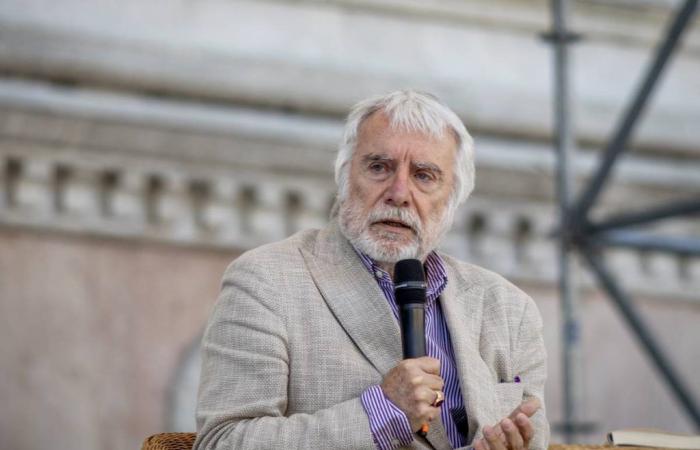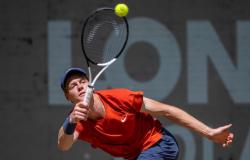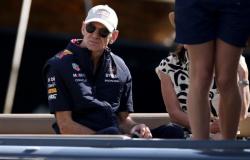“The problem is that kids lack emotions.” Bite the sky is the latest book by professor and psychiatrist Paolo Crepet. With him we tried to understand something more about how one could, at sixteen, kill a peer, with the cruelty with which Christopher Thomas Luciani was killed in Pescara.
Professor Crepet, isn’t there an instinct in humans, written in their DNA, not to kill?
“No, this is a do-gooder vision of the human being. The human being is more complicated than how it is told. Inside each of us there is the wicked, the evil. It has always been there.”
Are we equipped with badness and goodness at birth?
“In equal measure. We are led to think that the journey of civilization has led us to a greater amount of goodness, respect, love, interest and curiosity. But all this is not true. Over time we have not cared for the soul. We have just busy taking care of cells. Our great-great-grandfathers lived for fifty years, today our children live for ninety.”
Was extending life expectancy the only interest in human beings?
“We thought it was important to have seventy-year-olds go for jogs and eighty-year-olds to make love. We just focused on that.”
Where is the misunderstanding?
“Believing that this spasmodic attention towards cells was connected to the soul as communicating vessels are connected. By improving physicality, the quality of life, automatically – we think – one becomes a better person.”
And instead?
“Nothing could be further from the truth.”
In the case of Pescara, don’t you see any psychic imbalance underlying the brutality of the murder?
“There is rather an educational imbalance. We are born healthy, in the physiological sense of the term. As soon as a child is born the first thing they look at is the famous Apgar index.”
Isn’t that an important parameter?
“Of course it is. It’s just that we tend to think that if the child has a good Apgar, then he’s fine. But that’s not the case.”
So if genetics have nothing to do with it, what drives such young boys to kill?
“Some time ago I wrote a book about bad boys, Violent hearts, where I recounted my encounter with a sixteen-year-old boy who was a criminal, a murderer. He said to me: ‘But why do you think my brother is in Milan and, unlike me, is he a good person?'”
In fact one might think that the family education was the same. So?
“You have five children and you are a good mother to all five of them, giving them bread with jam to all five, distributing your skills to everyone. But it doesn’t work that way. We are still at Apgar if we think this. The real problem is that maybe you listened to the fifth less and maybe you even dislike it a little while you adore the second because you identify with it. This thing is impalpable but formidable.”
Do we take too much care of the body and too little of the soul?
“Exactly.”
He often gets angry with parents who fix the child’s backpack. Why?
“Because that child becomes an idiot. But if I say this they call me insults and accuse me of being a talking cricket. I simply say simple things. Your grandmother, and my grandmother, understood that children had to make their own school bags. Now adults don’t understand it anymore.”
We try to do everything we can to take away their frustrations…
“But it’s the worst thing you can do. The educational horror is giving a 16-year-old boy a pedal-assisted bicycle. Thinking you’re helping them, you condemn them.”
The two murderers we are talking about are two classic good guys: dad policeman, dad lawyer. Was it possible for those who lived next to them to notice that something was wrong?
“Absolutely yes. There are those who say no, that it’s the fault of genetics, that it’s the fault of a fit or destiny… Well, those who say that don’t understand anything. Because, on the contrary, we can and must intervene .”
As?
“Always talking about the future. If today I stood there with these parents and the boy, I wouldn’t talk about the past and what happened. The magistrates will deal with this. I would talk about the future. I would ask the boy: what do you want to do in five years’ time? ‘Who do you want to be? Who do you imagine yourself to be? This is where all the limitations emerge. This is your problem,’ I would tell him. ‘Your violence comes from your frustration, which is yours because you don’t have a future and you can’t even imagine it’.”
So what is the cure?
“Care is the future.”
Is there always a possibility of recovery, even for those who have committed the most horrendous crimes?
“Yes, always.”
Often these dramas happen during adolescence.
“Adolescence is the volcano that erupts. And we get burned when it erupts. We need to lengthen childhood. Stop killing it. Today we think that a child is a child for three years. Then he has to start doing who knows what. The cure for Adolescence starts from childhood. We must do a very simple thing: let children play. Let them be children.”
In his latest book Biting
heaven explains that these kids lack emotions.
“Precisely because they missed the game. The game is empathy. These children have to play, win and lose. The pedagogy of defeat is fundamental.”






